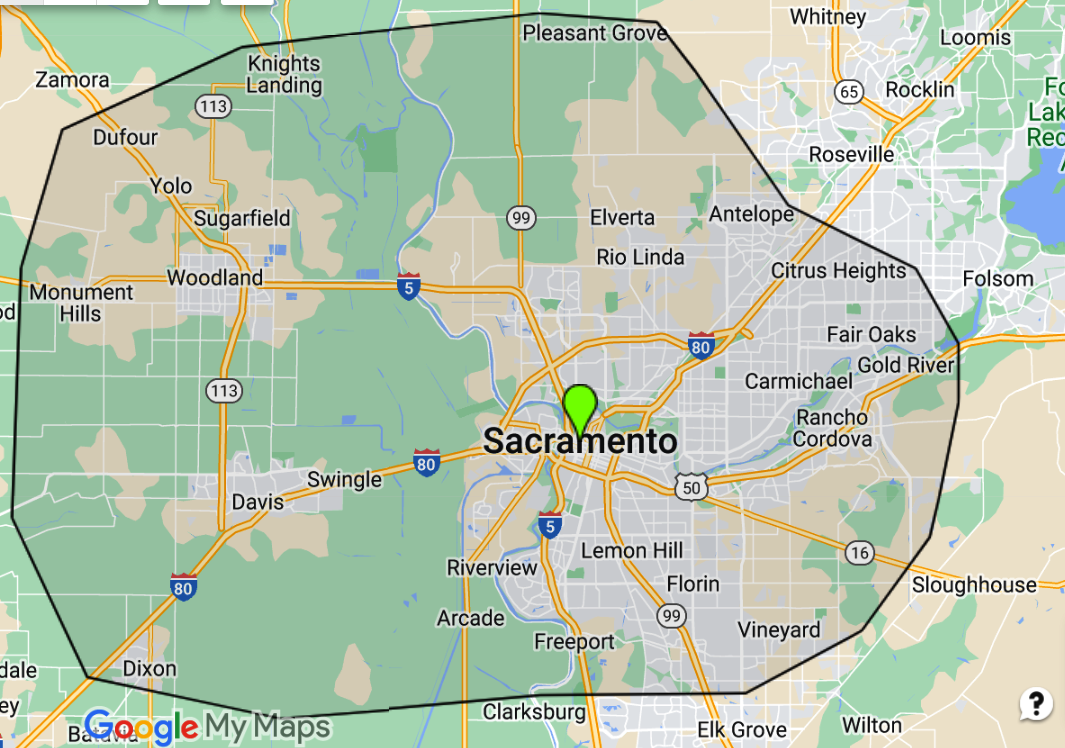
Sacramento - 916-542-6384
Pest Exclusion
We provide pest exclusion service for both residential and commercial properties.
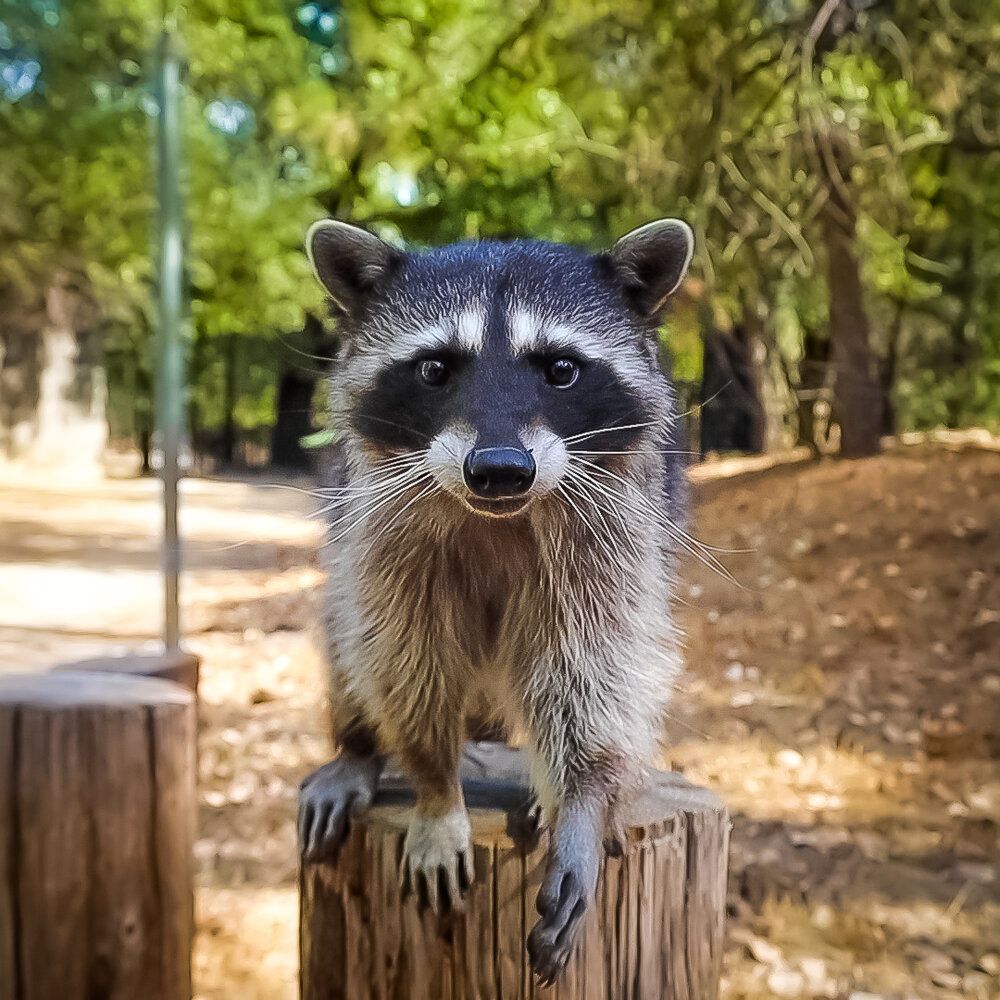
We prioritize your family's safety and well-being by offering tailored solutions to your specific wildlife-related issues
Wildlife can cause significant problems by carrying harmful diseases and causing property damage. Our comprehensive wildlife removal and exclusion services can help you in the following ways:
- Free, No Obligation Quote
Upon contacting us, we will offer you a complimentary quote for our effective and all-encompassing program, without any obligation.
- Flexible Solutions
We understand that every wildlife problem is unique, which is why we design flexible solutions that are customized to your particular challenges.
- Expert Technician Team
Our team consists of experienced professionals who possess extensive knowledge of wildlife habits, such as nesting and breeding locations. They can safely remove the wildlife from your home.
- Personalized Plans
After conducting a thorough inspection of your property, we will provide you with a personalized plan that addresses your specific requirements and answer any queries you may have.
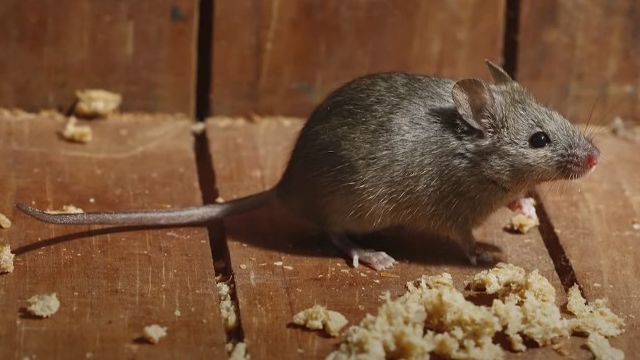
Wildlife Exclusion
Wildlife prevention through exclusion is a crucial step in safeguarding your home against the damaging effects of rodents. These pests can cause significant destruction once they enter your property. Our skilled technicians possess the necessary expertise to identify and seal common entry points around your home's exterior, including the roof, gable or soffit vents, chimneys, crawlspaces, and other potential entryways that could allow animals to gain access to your structure. By doing so, we can help ensure that your home remains protected from rodents and other wildlife.
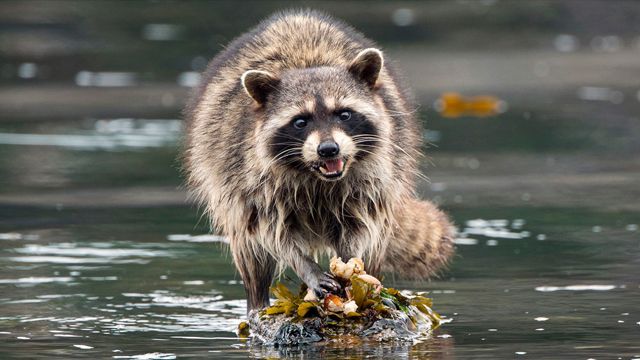
Raccoon Exclusion
Raccoons are known to spread diseases that pose a threat to the health of you, your loved ones, and your pets. In fact, they are one of the most prevalent carriers of rabies. Additionally, raccoons can cause significant damage to homes by tearing up soffits and roof shingles, damaging vents in the attic, and chewing through insulation, among other things. If you encounter a raccoon problem, contact us immediately for prompt and efficient removal services.
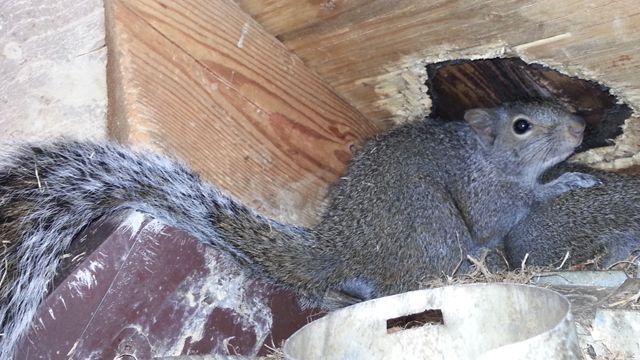
Squirrel Exclusion
Squirrels possess habits that are comparable to those of rats and mice, and they can also transmit harmful diseases. If left unaddressed, squirrels can cause extensive damage to your home's siding, insulation, cables, wires, and other components. Moreover, their gnawing on wires can even result in house fires. Our experienced squirrel trappers can promptly apprehend squirrels before they inflict further damage on your property. Don't wait; contact us immediately for squirrel removal services.

Bat Exclusion
Bats can transmit disease in several ways, including through their droppings and urine. Moreover, their waste can cause significant harm to your home by leaking through drywall, damaging ceilings, and ruining insulation. If you suspect that bats may be present in your home, it's crucial to seek professional bat removal services immediately to prevent any further damage to your property.

Exclusion Services
Wildlife exclusion services are designed to protect your home from unwanted animals, such as rodents, squirrels, raccoons, and other wildlife species. These animals can cause significant damage to your property, and in some cases, even pose a threat to the health and safety of you and your loved ones.
Attempting to remove wild animals from your property without the necessary tools, equipment, and training can be dangerous and lead to injury or illness. Moreover, there are legal issues involved with removing wild animals, and navigating these laws can be challenging. As such, it's essential to seek professional wildlife removal services.
Our team of trained technicians is well-equipped to inspect your property, identify any critters present, and determine their hiding and breeding locations. Using this information, we create a customized plan to safely remove the animals from your home and seal off any openings that allowed them access to your structure. Our wildlife control services are fast, effective, and affordable. Whether you're dealing with raccoons, armadillos, squirrels, bats, or any other wildlife species, we have the expertise necessary to exclude and remove them from your property safely and efficiently.
Wildlife Exclusion
Many animals instinctively seek out food, water, and shelter to survive. Unfortunately, this instinct can lead them to enter homes, especially crawl spaces, basements, attics, and walls. These areas provide warmth, shelter, and protection from inclement weather, making them an attractive location for pests. While this may be ideal for animals, it can lead to inconvenience, property damage, and even health issues for homeowners and their families. As a result, many homeowners search for wildlife removal services.

Wildlife Conservation Agencies define nuisance wildlife as any animal that causes property damage, poses a threat to public safety, or becomes an annoyance within, under, or on top of a building. If you have a pest on your property that meets any or all of these criteria, then wildlife removal services are essential. However, before reaching this point, there are preventative measures you can take to prevent wildlife from entering your home or yard.
Common Questions About Uninvited Wildlife Pests
-
How do I keep these intruders out of my yard?
To keep unwanted animals out of your yard, you'll need to remove anything that might attract them. This includes anything that could provide them with a place to live or food. For example, many animals like to make their homes in dark, damp, cool places, which they may find in woodpiles, overgrown gardens, or yard waste. Removing this debris and maintaining your garden can deter wildlife from moving in. Filling empty burrows or holes in your yard with gravel can make it more difficult for animals who live underground to move into your yard. Watering your lawn less can also have the same effect, as it makes it harder for burrowing animals to dig through.
Keeping food out of your yard can also prevent it from attracting animals. If you grow any edible plants in your garden, make sure to harvest them as soon as they're ripe, so pests can't get a hold of them. If you have any pets, avoid leaving their food outside overnight. Or, if you have any bird feeders hanging in your yard, remove them. Some animals, such as raccoons and opossums, are attracted to pet food and birdseed. Lastly, keep any trash cans you leave outside locked, as some animals dig through trash looking for food.
Not only should you remove means of survival when attempting to protect your yard from critters, but you should also repel the animals. One way to do this is to let any dogs you have run around your yard. They will scare many creatures off. Devices that make noise, such as wind chimes or pinwheels, can also scare them. Motion-sensor lights can do the same. As for natural repellents, you can grow certain plants in your yard that ward off unwanted pests. Such plants include lavender, bay laurel, wormwood, and narcissus. If you choose to use repellant plants and you have pets, please check which options are pet-safe.
If you continue to have issues with pests in your yard, particularly moles and armadillos, you may resort to hiring a wildlife removal service company to put bait in burrows or apply products to your yard to keep these critters away. Taking any or all of these steps can lower your odds of an unwanted creature entering your home.
-
How should I keep these intruders from going under my house?
To prevent animals from infiltrating your crawl space, it's crucial to ensure it is properly sealed and that moisture is kept out. Begin by inspecting your home's exterior for any damage that pests could exploit. For example, small openings or cracks in your home's foundation or siding can provide easy access for rodents and other pests. By repairing these damages promptly, you can prevent critters from entering your home.
Another effective way to deter animals such as opossums and armadillos from burrowing into your crawl space is to install concrete floors and walls. Additionally, laying down plastic or foil sheets can help prevent moisture buildup beneath your home, which can attract pests and also reduce the chances of cracks forming in the concrete.
It's also important to avoid planting bushes or shrubs near the side of your house, as they can provide a home for wildlife and create a damp environment that encourages pests. This can be especially problematic for burrowing animals, who may be attracted to the softer soil around your home. By taking these steps to seal your crawl space and discourage unwanted animals, you can help keep your home free from wildlife infestations.
-
How can I keep these wildlife pests out of my attic?
When it comes to keeping animals out of your attic, prevention is key. First, check for any holes or cracks where pests could enter, and promptly repair any damage you find. Animals may also enter your home through vents or your chimney, so consider installing covers and a cap to prevent their entry.
Trimming back any overhanging branches or trees near your roofline can also help deter wildlife from accessing your attic. Ideally, you should aim to have no trees within at least 20 feet of your home, but this distance may vary depending on the type of tree.
If you’ve had problems with animals in your attic in the past and want to prevent future invasions, consider hiring a wildlife removal company with an exclusion process. Experts can identify and seal common entry points in the exterior of your home, such as vents and chimneys, to reduce the risk of future animal habitation in your attic.
-
How do you handle nuisance wildlife?
If wild animals have invaded your home, it's important to contact professional wildlife removal experts to safely and effectively remove them. Attempting to remove the animals on your own can lead to injury or illness. If you are dealing with outdoor lawn pests, such as armadillos, you can also call in experts that specialize in wildlife pest control.
In addition to removing the animals, it's important to examine your home to determine where the animals may be entering. This can include checking soffit returns, vents, and other areas where wildlife may be able to gain access to your home. By sealing up these areas, you can prevent future wildlife presence in your home.
While inspecting your home, it's also a good idea to seal up any small cracks and crevices where rats, mice, and other pests may be able to enter your home. By taking preventative measures, you can reduce the likelihood of future pest infestations and protect your home from damage.
In conclusion, contacting professional wildlife removal experts is essential when dealing with wild animals in your home. By sealing up entry points and taking preventative measures, you can reduce the likelihood of future infestations and protect your home from damage.
-
How does a professional pest control company get rid of squirrels
Our team of trained professionals specializes in safe and effective squirrel removal from homes. Squirrels are a common sight in U.S. homes and may find their way into your attic or basement, and even travel through your walls. As soon as you notice a squirrel infestation, it's important to contact our team for squirrel removal services.
Attempting to remove squirrels on your own can be dangerous and may result in injury to both you and the animal. Our experts have the necessary skills and equipment to safely and humanely remove the squirrels from your home. We use proven methods to trap and remove the squirrels, while also taking preventative measures to ensure that they don't return.
In addition to removing the squirrels, we can also identify and seal any entry points that the squirrels may have used to gain access to your home. By taking these preventative measures, we can help ensure that your home remains squirrel-free in the future.
In conclusion, if you have a squirrel infestation in your home, it's important to contact our team of professionals for safe and effective removal services. Our expertise and experience in squirrel removal will help ensure that your home remains free of these pesky rodents.
-
How should raccoon removal be handled?
If you're dealing with raccoons outdoors, motion-activated lights can be an effective deterrent. Additionally, make sure to tightly seal any outdoor trash, as raccoons are clever animals that can easily open containers. Consider using trash bags with raccoon repellents to further discourage them. It's also important not to leave pet bowls or bird feeders outdoors except when necessary.
Trimming trees and other landscaping near your home can also eliminate access points to your roof, which can be a common entry point for raccoons. Another effective way to discourage raccoons is to have your lawn treated for grubs, which can eliminate another food source for them.
If raccoons do manage to get inside your home, it's important to contact professional raccoon removal services for safe and effective removal. Attempting to remove raccoons on your own can be dangerous and may result in injury to both you and the animal. Our team of experts has the necessary skills and equipment to safely and humanely remove raccoons from your home, while also taking preventative measures to ensure that they don't return.
In conclusion, there are several steps you can take to discourage raccoons from entering your property, including securing outdoor trash, limiting access to food sources, and trimming trees and other landscaping. If raccoons do manage to get inside your home, it's important to contact professional removal services to ensure safe and effective removal.
How can I Identify the type of animal that's inside my wall?
There are many types of animals that may move into your walls.
Here are some of the more common ones with helpful signs to determine which is living in your home:
-
Mice/Rats
Mice: Look for dark, rice-shaped droppings with pointed ends and chew marks on floorboards or food boxes. Mice are most active at night.
Rats: Droppings and chew marks are bigger than those of mice. Rats are bigger and more active than mice, making more noise. They can also climb or swim through pipes.
-
Snakes
Snakes: Look for snake skin or slither tracks in the dust or dirt around your home. Some snakes release a strong, musky odor if they feel threatened. Their droppings look like bird droppings but have bones or hair from prey in them.
-
Bats
Bats: Listen for high-pitched chattering sounds coming from your walls, particularly around twilight. Check the exterior of your home at sunset to see if you can find any bats exiting an opening. Their droppings, called guano, have a strong ammonia smell and are dry and powdery.
-
Opossums
Opossums: Listen for hissing or clicking noises in your wall at night. They love pet food, so you may notice torn pet food bags. Their droppings are wet and odorous.
-
Raccoons
Raccoons: Look for large chew marks in your drywall and listen for scratching, chewing, and crawling sounds at night. Knock on the wall to see if the noises continue and the animal doesn't sound as though it's trying to get away.
-
Squirrels
Squirrels: Look for squirrels on your roof during the day, which can be a sign they're living in your walls. Listen for chattering or scampering noises, and knock on the wall to see if they run away. Squirrels also chew and can damage electrical wires.
It's essential to take the necessary steps to identify which animal has taken up residence in your home. Each species requires different methods of removal, and attempting to remove them without proper knowledge can lead to significant damage and even injury. A wildlife removal certification or professional animal removal company will have the expertise to identify the species and implement humane and effective removal methods.
Removing wildlife from your home is crucial to protect your property and prevent health risks to you and your family. These animals can carry diseases and parasites, contaminate food and water sources, and cause structural damage to your home. Early detection and removal are crucial to minimizing the damage caused by these pests.
If you hear noises in your walls, see droppings, or notice damage to your home, it's best to act quickly and contact a professional animal removal service. They will assess the situation, identify the animal, and provide a comprehensive plan for safe and effective removal. Don't try to handle it yourself; instead, trust the experts who have the knowledge and tools necessary to remove wildlife from your home safely.
The dangers of Squirrels in your attic!
Wild animals entering your home can be a serious problem, causing extensive damage that can be costly to repair. These animals, such as squirrels, can cause a range of issues, including:
- Chewed electrical wires: Squirrels and other rodents have a tendency to chew on anything they can get their teeth on, including electrical wires. This can cause a serious safety hazard, as it increases the risk of house fires.
- Holes and cracks in walls and foundation: Animals can create entry points in your home's walls and foundation, weakening the infrastructure of your home. These openings can also allow water to seep into your home, causing damage and mold growth.
- Holes in drywall and insulation: Animals can create holes in your home's drywall and insulation as they move around, which can allow moisture and unwanted heat into your home. This can cause your energy bills to increase, as your heating and cooling systems work harder to maintain a consistent temperature.
- Damaged air ducts: Animals can also cause damage to your home's air ducts, which can cause your HVAC system to work less efficiently. This can result in more expensive energy bills and a less comfortable living environment.
- Holes in siding: Animals can create holes in your home's siding, which can expose your home to the elements. This can cause water damage and lead to costly repairs.
To prevent these issues, it's important to take steps to keep animals out of your home. This may include sealing off any entry points, such as gaps in your siding or roof, and keeping your property tidy and free of potential food sources. Additionally, it's important to regularly inspect your home for signs of animal activity, such as droppings or damage to your property, and to promptly address any issues that arise.
If you do discover an animal in your home, it's important to contact a professional pest control service to safely and effectively remove the animal and address any damage they may have caused. By taking preventative measures and seeking professional assistance when needed, you can ensure a safe and comfortable living environment for yourself and your loved ones.
When wild animals enter your home, they not only cause physical damage but also pose a serious health risk to you, your family, and your pets. These animals, along with their droppings and parasites, can carry
various diseases, including:
-
Rabies
Rabies: A viral disease that affects the central nervous system, which can be fatal if left untreated. This disease can be transmitted through the bite of an infected animal.
Symptoms include:
Symptoms of rabies are similar to those of the flu - fever, headache, and generally feeling unwell. As rabies progresses, symptoms may include... experiencing delirium, abnormal behavior, and hallucinations, as well as the infamous hydrophobia and foaming at the mouth (related to the paralysis of swallowing muscles).
-
Histoplasmosis:
Histoplasmosis: A fungal infection that can be contracted by inhaling spores found in bird and bat droppings. Symptoms can range from flu-like symptoms to severe respiratory problems.
Symptoms include:
- Headache
- Muscle aches and joint pain
- Fever and chills
- Chest pain
- Dry cough
- Weight loss
- Fatigue
- Rash
-
Salmonella:
Salmonella: A bacterial infection that affects the digestive system and is often contracted through contact with contaminated animal droppings.
Symptoms include:
- Diarrhea
- Fever
- Stomach Pain
-
Hantavirus:
Hantavirus: A virus that can cause respiratory disease or hemorrhagic fever, which can be fatal if left untreated. This virus is commonly spread through contact with rodent droppings.
Symptoms include:
- Headaches
- Muscle aches
- Digestive issues
- Fever
- Dizziness
- Chills
It can even lead to death if not treated. The latter is a disease with many of the same symptoms as HPS. Other symptoms include:
- Blurred vision
- Inflammation of your eyes
- Rash
-
Tularemia:
Tularemia: A bacterial infection that can cause skin ulcers, pneumonia, and other flu-like symptoms. It is often transmitted through contact with infected rodents or their droppings.
Symptoms include:
- Skin ulcers
- Pneumonia
- Inflamed eyes
- Headache
- Muscle and joint pain
- Dry cough
- Fever
- Chills
- Weakness
-
What should I do to prevent disease exposure?
Immediate removal of animals from your home is crucial to protecting your health and preventing the spread of disease. It's important to contact a professional pest control service to safely and effectively remove the animals and clean up any droppings or debris they may have left behind. Taking preventative measures, such as sealing off entry points and keeping your property tidy, can also help to reduce the risk of an animal infestation and protect the health of you and your family.
What if I find an animal intruder in my house?
When wild animals invade your home, it's important to take swift action to prevent further damage and health hazards. Waiting too long can increase the risk of damage to your property and expose your family to unsanitary living conditions and diseases. However, attempting to scare or catch the animal on your own is not recommended, as it can lead to injury for both you and the animal. Additionally, in many areas, permits are required to handle or remove wildlife.
The first step should be to put some distance between you and the animal, while maintaining safety. Keep an eye on the animal's whereabouts and try to take pictures if possible, without provoking it with flash or noise. This can help pest control professionals identify the animal and determine how to safely remove it from your home. Documenting any damage or entry points can also provide valuable information to help prevent future infestations.

Next, contact a pest control company that specializes in removing nuisance wildlife. If you are renting your home, contact your landlord who should then arrange for pest control services. These trained professionals have the necessary tools and experience to safely trap or bait the animal and remove it from your home.
To prevent future infestations, it's important to seal off any entry points that the animal may have used to enter your home, such as gaps in the siding or roof. Keeping your property tidy and free of potential food sources can also help to deter animals from entering your home.
In conclusion, taking swift action and contacting a professional pest control service is crucial when dealing with wild animals invading your home. By following these steps, you can ensure the safety of yourself, your family, and the animal, while preventing further damage and future infestations.
Will Squirrels leave the attic by themselves?
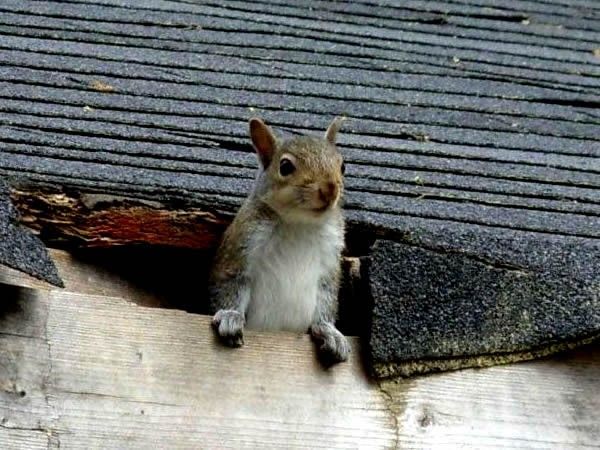
When wild animals take up residence in your home, it can be difficult to get them to leave. These animals are attracted to the shelter and warmth your home provides, and may not want to leave as long as they feel safe and comfortable there. While some animals may leave during the day to look for food, they usually return to your home for shelter.
However, nesting animals may leave after reproducing and raising their offspring. Once their young are old enough to move on their own, the family may relocate to a new area. However, if the animals are causing damage or pose a threat to your health, it's best to have them removed by professionals.
Disrupting the animals' comfort can sometimes be enough to make them leave. For example, playing loud music or using bright lights near their living space can be effective. Additionally, strong-smelling substances such as apple cider vinegar can deter animals from staying in your home. However, it's important to note that these methods may not work for all situations, and professional pest control services may be necessary.
It's important to avoid contacting animal control in situations like this, as they may not be equipped to handle nuisance wildlife removal. Instead, contact a pest control company that specializes in safely and humanely removing animals from your home. These professionals have the necessary equipment and expertise to handle the situation safely and effectively.
In addition to removing the animals, it's important to take preventative measures to prevent future infestations. This may include sealing off entry points, keeping your property tidy, and storing food in airtight containers.
In conclusion, getting wild animals to leave your home can be a difficult task, but with the help of professionals, it can be done safely and effectively. Taking preventative measures can also help to prevent future infestations and protect your home from damage.
Can Animal Control Help?
Animal control services are primarily focused on the care and safety of domestic animals, such as dogs, cats, and livestock. They work to control the population of domestic animals by encouraging sterilization and may provide temporary shelter for stray animals to help them find permanent homes. Additionally, if you suspect animal abuse or neglect in your area, you can contact animal control, and they will investigate the situation and take action if necessary.
In cases of domestic animal aggression, it's important to contact animal control. They will investigate the situation and determine the appropriate steps to protect the community. If a domestic animal bites someone or is bitten by another animal, animal control will look into it to ensure that the animal does not have rabies.
However, if you are dealing with a wildlife problem, you will need to contact a pest control company. These professionals specialize in safely and humanely removing nuisance wildlife from your property. They have the expertise and equipment necessary to handle a variety of wildlife situations, from raccoons and squirrels to snakes and bats.
It's important to remember that wildlife removal should always be done in a safe and humane manner. Trying to remove wildlife on your own can be dangerous and may result in injury to both you and the animal. By contacting a reputable pest control company, you can ensure that the animals are removed safely and your property is protected from further damage.
Serving Sacramento, CA and Surrounding Areas
Sacramento
Pleasant Grove
Knights Landing
Yolo
Dufour
Sugarfield
Elverta
Antelope
Rio Linda
Citrus Heights
Monument Hills
Woodland
Fair Oaks
Gold River
Carmichael
Rancho Cordova
Swingle
Davis
Lemon Hill
Riverview
Florin
Arcade
Freeport
Dixon
Vineyard
